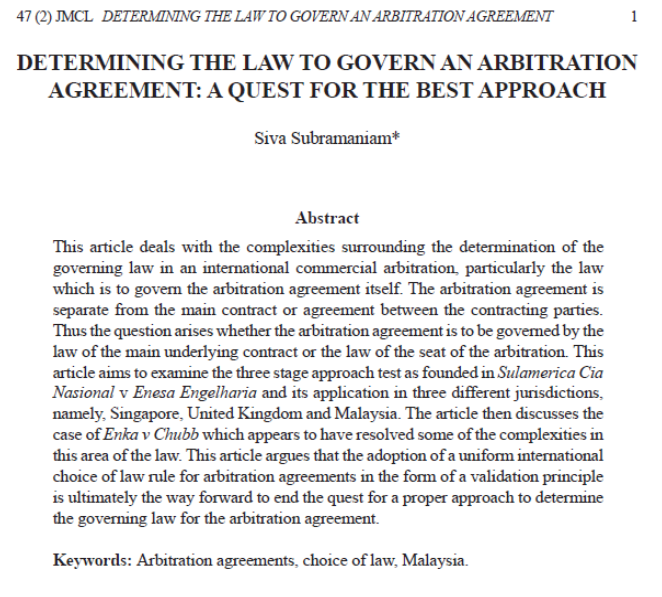Determining the Law to Govern an Arbitration Agreement
A Quest for the Best Approach
Keywords:
Arbitration agreements, choice of law, MalaysiaAbstract
This article deals with the complexities surrounding the determination of the governing law in an international commercial arbitration, particularly the law which is to govern the arbitration agreement itself. The arbitration agreement is separate from the main contract or agreement between the contracting parties. Thus the question arises whether the arbitration agreement is to be governed by the law of the main underlying contract or the law of the seat of the arbitration. This article aims to examine the three stage approach test as founded in Sulamerica Cia Nasional v Enesa Engelharia and its application in three different jurisdictions, namely, Singapore, United Kingdom and Malaysia. The article then discusses the case of Enka v Chubb which appears to have resolved some of the complexities in this area of the law. This article argues that the adoption of a uniform international choice of law rule for arbitration agreements in the form of a validation principle is ultimately the way forward to end the quest for a proper approach to determine the governing law for the arbitration agreement.
Downloads



